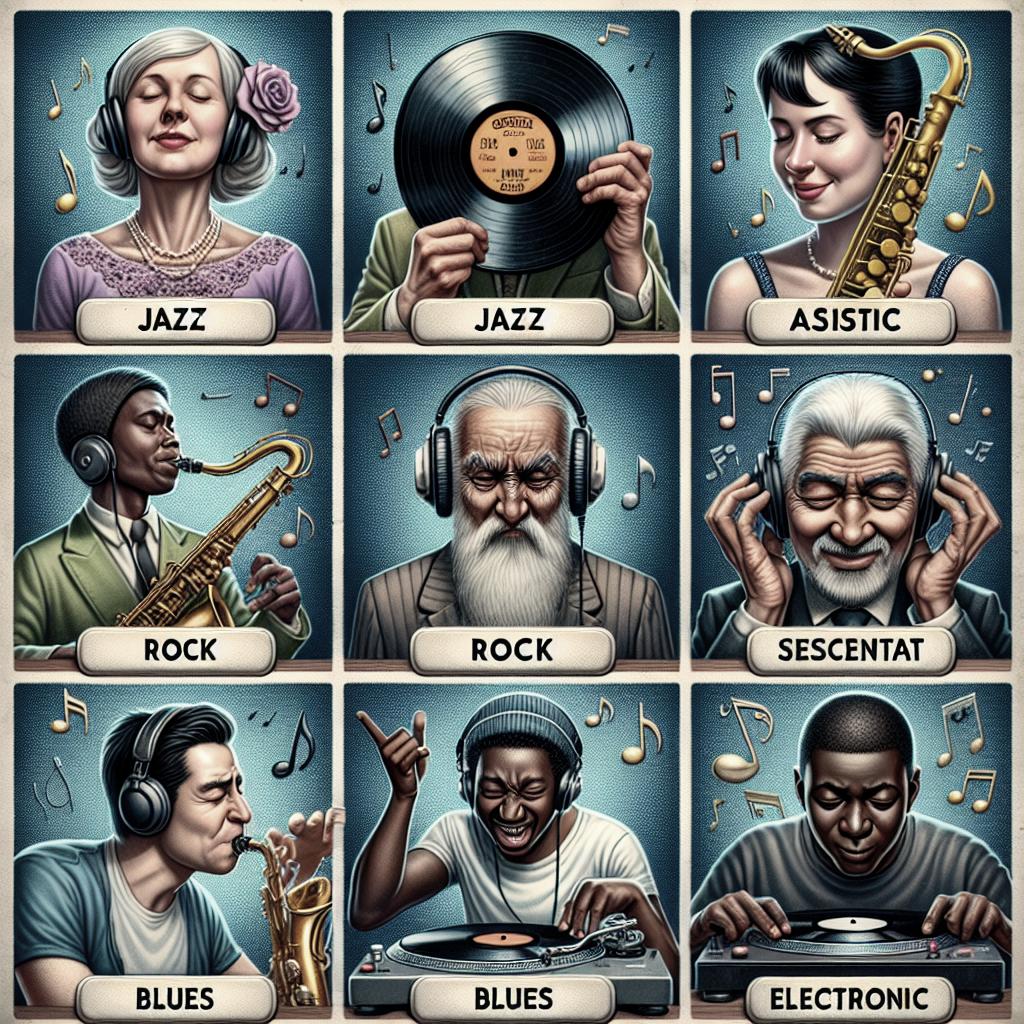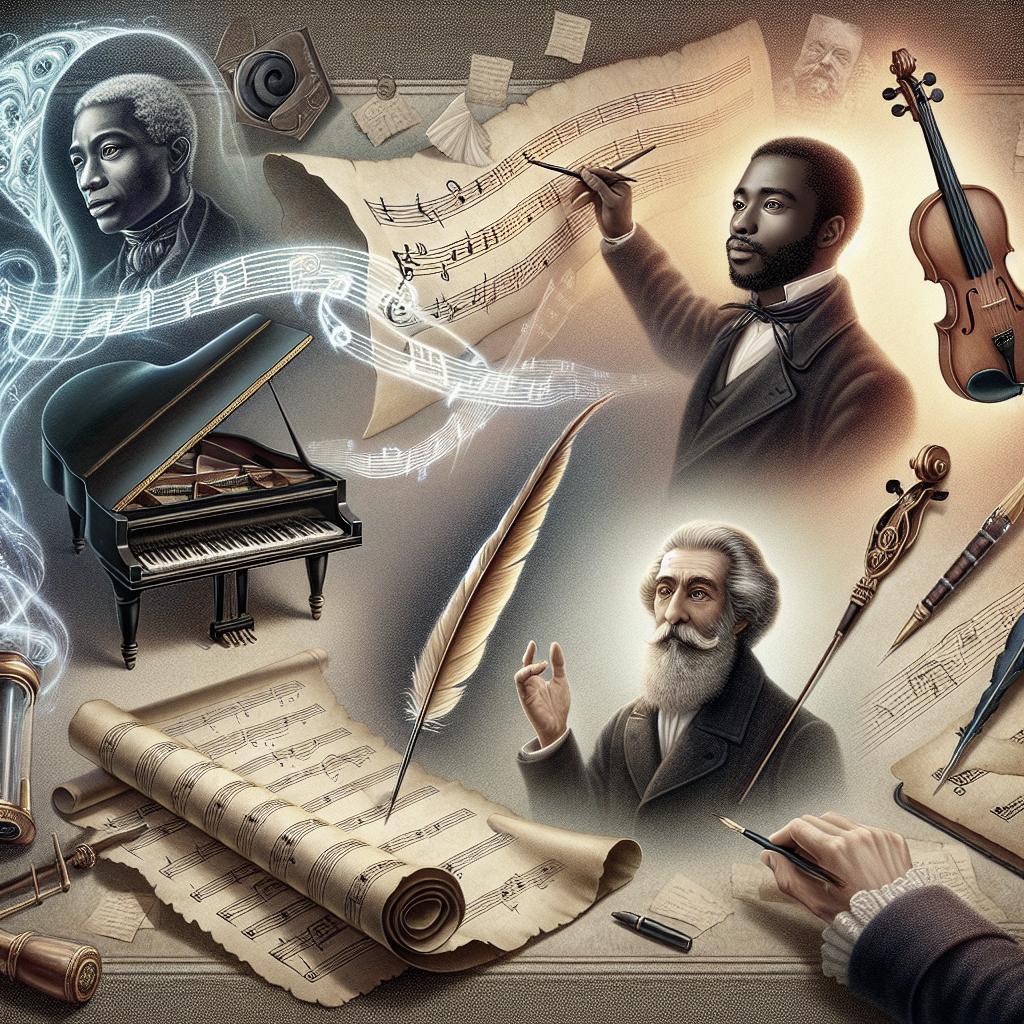“`html
Guide to Different Music Genres
Music is a universal language that transcends cultural and linguistic barriers. With countless genres to explore, each offering a unique sound and emotional experience, it can be both fascinating and overwhelming to delve into the world of music. This guide will take you through an exploration of various music genres, including their significance, cultural impact, and the possibility of mixing styles. We’ll explore the popular genres that dominate today’s charts, examine how these genres influence societal norms, and offer insights into how you can discover your personal favorites. Finally, we will speculate on the future of music genres and how they continue to evolve. Join us as we embark on a melodious journey through the multifaceted world of music genres.
What Are Music Genres?
Music genres are categories that define the style, form, and content of music compositions. They help listeners understand what to expect from a piece of music based on its genre classification. Genres can be defined by various factors such as rhythm, instruments used, cultural origin, and the emotions they evoke. For example, classical music is characterized by sophisticated composition and orchestration, while rock is known for its energetic and guitar-driven sound.
Over time, the classification of music into distinct genres has evolved, reflecting social changes, technological advancements, and artistic experimentation. These categories not only help listeners identify their preferences but also aid artists in targeting specific audiences. Moreover, genres provide a framework for the music industry to categorize and market music effectively.
Why Do Music Genres Matter?
Music genres hold cultural, historical, and social significance. They serve as a reflection of societal values, capturing moments in history and the emotions of a particular era. Genres like jazz and blues, for example, emerged from African American communities, bringing attention to their struggles and storytelling traditions.
By categorizing music into genres, artists and listeners can forge connections through shared tastes and experiences. Genres act as a common language, enabling musicians, producers, and fans to communicate about music effectively. They provide a sense of identity and community among people with similar musical preferences.
A Closer Look at Popular Music Genres
Popular music genres today include pop, rock, hip-hop, electronic dance music (EDM), and country. Pop music is known for its catchy melodies and mass appeal, often incorporating elements from various genres. Rock music has many subgenres, ranging from the raw energy of punk rock to the complex compositions found in progressive rock.
Hip-hop, originating from the streets of New York City, has become a global phenomenon, characterized by its rhythm, rhyme, and social commentary. EDM encompasses a variety of electronic music styles, from techno to house, that create immersive auditory experiences. Country music continues to resonate through its storytelling and emotional depth, capturing the essence of rural life.
How Genres Influence Cultures
Music genres are powerful cultural influencers that have the ability to shape and transform societies. Genres like reggae have been instrumental in promoting messages of peace and social change, while punk rock has been associated with rebellion and anti-establishment sentiments.
In many cases, music genres become synonymous with fashion, language, and lifestyle, influencing everything from clothing styles to societal norms. The global reach of genres like K-pop demonstrates how music can transcend geographical boundaries, fostering cultural exchange and understanding.
Can You Mix Music Genres?
The blending of music genres, known as genre fusion or crossover, has led to the creation of innovative and groundbreaking music. Artists often experiment by combining elements from different genres to form new sounds, resulting in the emergence of novel genres like rap-rock or folk-pop.
Genre fusion pushes musical boundaries, appealing to diverse audiences and keeping music fresh and exciting. However, it can also challenge traditionalists who prefer purer forms of specific genres. Nonetheless, these musical hybrids offer endless creative possibilities and showcase the evolving nature of music.
How to Discover Your Favourite Genre
Discovering your favorite music genre involves exploration and experimentation. Start by listening to a variety of artists and albums across different genres. Streaming platforms and music recommendation algorithms can assist in identifying music that aligns with your tastes, introducing you to unfamiliar genres you might enjoy.
Attending live concerts and festivals offers an immersive experience, allowing you to hear and feel the music firsthand. Engaging with music communities and forums can also provide insights and recommendations from fellow music enthusiasts who share your interests.
The Future of Music Genres
The future of music genres is ever-evolving, driven by technological advancements and cultural shifts. As technology continues to break down geographical barriers, we can expect more cross-cultural collaborations and the emergence of hybrid genres that blend styles from around the world.
Streaming services and social media have democratized music consumption, giving independent artists the platform to reach global audiences without being confined to traditional genre constraints. The lines between genres will likely blur even further, creating a more inclusive and diverse musical landscape.
Lessons Learned
| Topic | Summary |
|---|---|
| What Are Music Genres? | Music genres classify compositions based on style, form, and cultural origin, offering a framework for understanding and marketing music. |
| Why Do Music Genres Matter? | Genres capture cultural and historical significance, fostering connections and a common musical language among audiences and artists. |
| A Closer Look at Popular Music Genres | Explores the characteristics and global appeal of popular genres such as pop, rock, hip-hop, EDM, and country. |
| How Genres Influence Cultures | Genres shape societal norms and lifestyles, acting as cultural influencers and promoting messages across different communities. |
| Can You Mix Music Genres? | Genre fusion leads to innovative music by combining elements of different genres, expanding creative boundaries. |
| How to Discover Your Favourite Genre | Involves exploring various genres through listening, attending live performances, and engaging with music communities. |
| The Future of Music Genres | Anticipates more cross-cultural collaborations and the further blurring of genre lines due to technological and social advancements. |
“`


